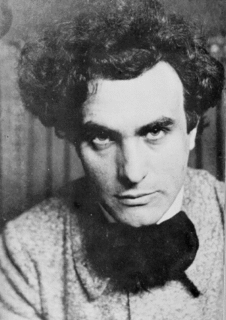A Quote by Pierre-Auguste Renoir
Related Quotes
...art must must carry man's craving for the ideal, must be an expression of his reaching out towards it; that art must give man hope and faith. And the more hopeless the world in the artist's version, the more clearly perhaps must we see the ideal that stands in opposition - otherwise life becomes impossible! Art symbolises the meaning of our existence.
The art is more important than the artist. The work is more important than the person who does it. You must be prepared to sacrifice all the you could possibly have, be, or do; you must be willing to go all the way for your art. If it is a question between choosing between your life and a work of art -- any work of art -- your decision is made for you.
In a free society, every opportunity comes with three obligations. First, you must seize it. You must mold it into a work that brings value to others. Second, you must live it. Opportunity is nurtured only by action. Third, you must defend the freedom to pursue opportunities. You must embrace these three obligations as if the future of the United States depended on it. In fact, it does.
Our minds must meditate on some object. According to what he thinks, a man can create an atmosphere of radiance, exuberance, buoyancy; and this brings joy. Or he can carry gloom with him. It is a matter of the habit of thought. We must build up our own life by our thoughts. There are many ways by which we can do this. Art, music, even manual work, all can bring ripening to the soul.
Though we travel the world over to find the beautiful, we must carry it with us, or we find it not. The best of beauty is a finer charm than skill in surfaces, in outlines, or rules of art can ever teach, namely, a radiation from the work of art of human character, — a wonderful expression through stone, or canvas, or musical sound, of the deepest and simplest attributes of our nature, and therefore most intelligible at last to those souls which have these attributes.
In most modern instances, interpretation amounts to the philistine refusal to leave the work of art alone. Real art has the capacity to make us nervous. By reducing the work of art to its content and then interpreting that, one tames the work of art. Interpretation makes art manageable, conformable.
Art thou in misery, brother? Then I pray Be comforted. Thy grief shall pass away. Art thou elated? Ah, be not too gay; Temper thy joy: this, too, shall pass away. Art thou in danger? Still let reason sway, And cling to hope: this, too, shall pass away. Tempted art thou? In all thine anguish lay One truth to heart: this, too, shall pass away. Do rays of loftier glory round thee play? Kinglike art thou? This, too, shall pass away! Whate'er thou art, wher'er thy footsteps stray, Heed these wise words: This, too, shall pass away.






































